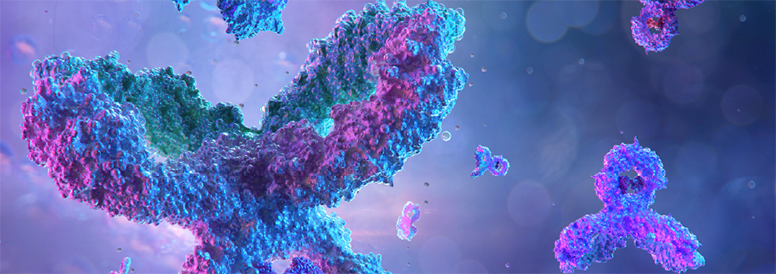Dysfunction of the intestinal microenvironment is the primary therapeutic target of the lifestyle medicine movement. We rightfully focus our diagnostic and treatment efforts on three areas within this environment: dysbiosis, barrier dysfunction and intestinal inflammation. Diet and lifestyle are, of course, the foundations for improving all three areas of this internal environment. Still, certain rare supplements can also combat all three issues.
Benefits of Serum-Derived Bovine Immunoglobulins
Serum-derived bovine immunoglobulins (SBI) have been a game changer for my practice precisely because they have positive effects on dysbiosis, inflammation and barrier dysfunction. The impact on dysbiosis has always been most impressive to me in that it exerts its benefits by acting as a biological binding agent, just as our own antibodies in the blood do. By binding and sequestering dysbiotic organisms, SBIs enhance our ability to clear and calibrate the microbiome.
From prior binding assays, we knew that the immunoglobulins could bind H. pylori, lipopolysaccharides and other bacterial targets. These binding assays have now been updated to show that SBI binds well to other important dysbiotic targets, such as Candida albicans, shiga toxin, and cytolethal distending toxin (CDT).
Effects of Cytolethal Distending Toxin on the Gut and Body
CDT is an exotoxin that comes from common causes of foodborne bacterial gastroenteritis, including Campylobacter jejuni, Salmonella, E. coli, and Shigella. It is a potent inducer of post-infectious IBS, and CDT is implicated in many models of gut-brain axis dysfunction and associated neurodegeneration. CDT also damages the intestinal lining by creating cell lysis and death through DNA destruction of the intestinal epithelial cells. It can also trigger a localized autoimmune cascade that propagates the damage throughout the gut, sometimes extending beyond the GI tract to the central nervous system.
Having the ability to bind this toxin and clear it from the intestinal lumen is an important benefit of these immunoglobulins and provides the potential to repair damage caused by exposure to these potent exotoxins.
Microbiome and Mycobiome Research Updates
Fungal dysbiosis is the next frontier in understanding the microbiome’s impact on health. It’s quite clear that the balance of good vs. bad bacteria plays an important role, but I firmly believe the symbiotic relationship with fungal organisms will be more important in the long run.
For more information, see Reference 1 published in Frontiers in 2019 discussing the role of the mycobiome in neurological disease. Also, see Reference 2 published in eBioMedicine in 2021 discusses the role of the mycobiome in multiple sclerosis.
These are examples of new studies that demonstrate the importance of the mycobiome to the gut-brain axis. Tools to combat intestinal fungal dysbiosis represent another vital avenue to support efforts against gut-brain axis disruption. Thankfully, new binding assays show that SBIs do just that.
The Bottom Line
Rarely do we come upon a tool that is perfectly suited to repair a major, complex problem. In SBIs, we have such a tool. SBIs can support all three major areas of intestinal dysfunction implicated in modern inflammatory and autoimmune diseases. They also benefit the gut-brain axis by repairing barriers, supporting a balanced microbiome and controlling localized inflammation in the intestinal tract.
Updated binding assays have now shown in more detail how SBIs support a balanced microbiome by binding to and therefore assisting in clearing CDT and fungal organisms—two known threats to the health of the intestinal tract and, therefore, the body as a whole.
References:
- A Fungal World: Could the Gut Mycobiome Be Involved in Neurological Disease?, Jessica D. Forbes, et al, 09 January 2019, Frontiers
- Alterations of the gut mycobiome in patients with MS, Saumya Shah et al, 2021 Aug 26, eBioMedicine

